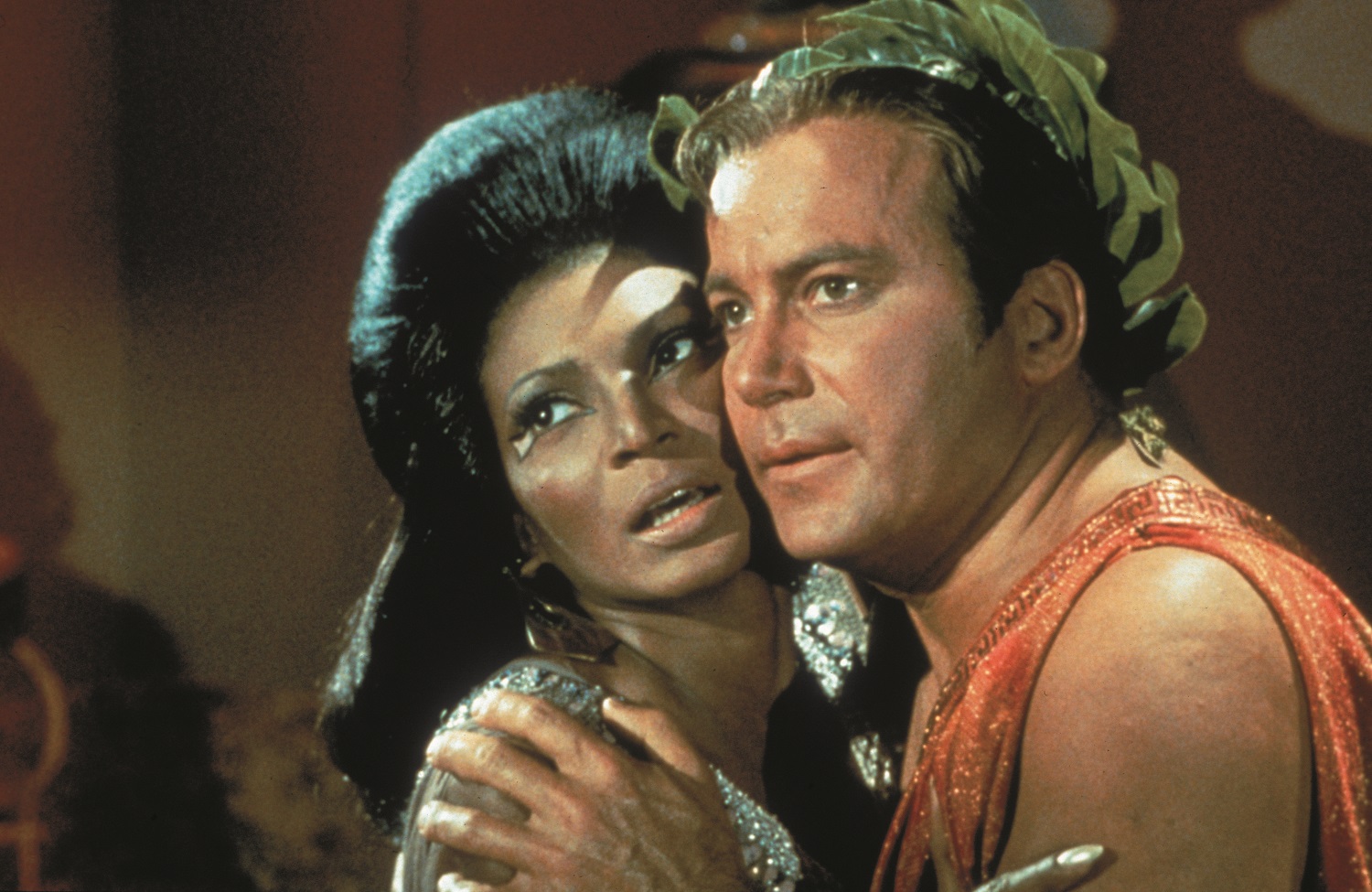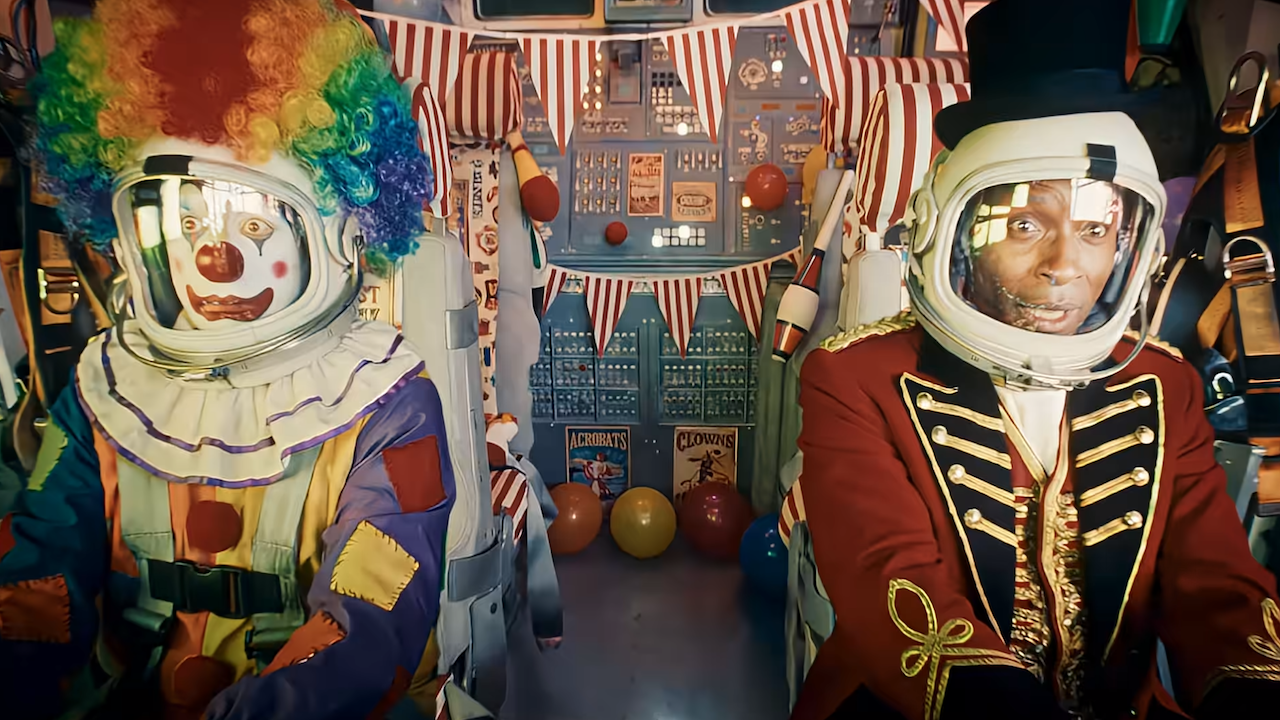Boldly go: SpaceX to launch diversity tribute to 'Star Trek' creator Gene Roddenberry
Gene Roddenberry's hope for the future of humanity continues in 'Star Trek' more than a generation after his death.

Breaking space news, the latest updates on rocket launches, skywatching events and more!
You are now subscribed
Your newsletter sign-up was successful
Want to add more newsletters?

Delivered daily
Daily Newsletter
Breaking space news, the latest updates on rocket launches, skywatching events and more!

Once a month
Watch This Space
Sign up to our monthly entertainment newsletter to keep up with all our coverage of the latest sci-fi and space movies, tv shows, games and books.

Once a week
Night Sky This Week
Discover this week's must-see night sky events, moon phases, and stunning astrophotos. Sign up for our skywatching newsletter and explore the universe with us!

Twice a month
Strange New Words
Space.com's Sci-Fi Reader's Club. Read a sci-fi short story every month and join a virtual community of fellow science fiction fans!
A commitment to diversity honoring "Star Trek" creator Gene Roddenberry will soon blast off to the final frontier.
Fans inspired by Gene Roddenberry, who launched "Star Trek" in 1966 with "The Original Series," will see their art go to space early next month on board SpaceX's Transporter 6 mission.
That flight will loft, among other payloads, a "flock" of tiny Earth-observing SuperDove satellites for San Francisco-based company Planet atop a Falcon 9 rocket. Some of those cubesats "will be adorned with artwork and quotes that celebrate the legacy of hope and inclusiveness of 'Star Trek' and its creator, Gene Roddenberry," representatives of Planet and the Roddenberry Foundation, which worked together on the project, said in a statement.
Related: NASA celebrates the life and career of 'Star Trek' star Nichelle Nichols
You can view a mosaic of the fan art on the "Boldly Go" campaign website (named after an iconic phrase from the franchise).
The campaign was launched by the Roddenberry Foundation in 2021 to celebrate the "Star Trek" creator's centennial year. (He was born in 1921 and died in 1991). The campaign sees humanity's future as "one of inclusion, scientific progress and co-operation across our differences," the statement reads.
"Star Trek showed us a future where diverse peoples come together across differences to work for the common good," Rod Roddenberry, son of Gene Roddenberry and co-founder of the Roddenberry Foundation, said in the same statement.
Breaking space news, the latest updates on rocket launches, skywatching events and more!
Gene Roddenberry has been lauded for his efforts to boost diversity, including casting a Black woman (Nichelle Nichols) in a starring role. He authorized the likely first interracial kiss on television, between Nichols (playing Uhura) and William Shatner (as Capt. James T. Kirk.)
Starring cast members of "The Original Series" also included a Japanese-American who had survived internment during the Second World War (George Takei) and the Chicago-born son of Russian Jewish immigrants (Walter Koenig), who was cast at the height of the Cold War space race between the United States and the Soviet Union.
But Roddenberry's practices were not perfect. Takei, a gay man who came out in 2005, after society became more accepting, has said that Roddenberry held back on portraying queer people on television during a highly restrictive era. Roddenberry had worried about network retribution, but to his credit, the "Star Trek" creator later said he regretted not being an advocate for that community.
Related: Space has a diversity problem — and big institutions like universities can do something about it
One year of Paramount Plus - $49.99/year.
Catch up on every official "Star Trek" television show and movie, and many of the specials, through Paramount Plus. The Essential plan (with commercials) is $49.99 a year, and you can pay a bit more to go Premium and ad-free.
The franchise remains committed to diversity three decades after Roddenberry's death. Taking "Star Trek Discovery" as just one recent example, it portrayed the first gay couple in a starring franchise role with Paul Stamets and Hugh Culber, played by Anthony Rapp and Wilson Cruz, respectively. The show also cast its first non-binary and trans characters; the trans character (Gray) is played by trans actor Ian Alexander, and the non-binary character (Adira) is portrayed by non-binary actor Blu del Barrio.
Trek diversity has also spilled off-screen. The death of Nichols in August, at age 89, prompted many to recall the time she worked directly with NASA in the 1970s to recruit people of color and women into the astronaut corps. That campaign brought in astronaut luminaries such as Sally Ride and Judith Resnick (the first and second American women in space), Guion Bluford and Ron McNair (the first and second Black Americans in space) and Ellison Onizuka (the first Asian American in space).
Elizabeth Howell is the co-author of "Why Am I Taller?" (ECW Press, 2022; with Canadian astronaut Dave Williams), a book about space medicine. Follow her on Twitter @howellspace. Follow us on Twitter @Spacedotcom or Facebook.

Elizabeth Howell (she/her), Ph.D., was a staff writer in the spaceflight channel between 2022 and 2024 specializing in Canadian space news. She was contributing writer for Space.com for 10 years from 2012 to 2024. Elizabeth's reporting includes multiple exclusives with the White House, leading world coverage about a lost-and-found space tomato on the International Space Station, witnessing five human spaceflight launches on two continents, flying parabolic, working inside a spacesuit, and participating in a simulated Mars mission. Her latest book, "Why Am I Taller?" (ECW Press, 2022) is co-written with astronaut Dave Williams.

